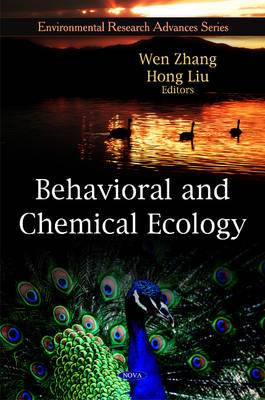Behavioural ecology is the study of the ecological and evolutionary basis for animal behaviour, and the roles of behaviour in enabling an animal to adapt to its environment. Chemical ecology, on the other hand, is the study of the chemicals involved in the interactions of living organisms. It focuses on the production of and response to signalling molecules and toxins. This book discusses how a comprehensive knowledge of an organisms' systematics, biology, ecology, and bioactivity of their secondary metabolites may act as a guide for chemical analyses of certain metabolites. It describes how rather simple bioassays can be highly efficient ways to increase our understanding of multitrophic interactions. This book also focuses on the ecological aspects of fungal secondary metabolites in the interactions between fungi and animals. The different aspects of animal interactions are investigated further with mushrooms to clarify the relevance of mushroom poisons. Also explored are some functional explanations of insect cognition. Given that all animals live on an Earth with many enduring properties, they might universally show certain adaptations accommodating these properties of the world. Other chapters in this book examine cuticular hydrocarbons and how they affect insect behaviour, a discussion of the potential of salivary protein profiles for non-invasively and dynamically accessing mammal feeding behaviour, the chemical ecology of phytophagous insects and their defence strategies, and the evolved behaviours of migrant birds to adapt to environmental variability.
- ISBN10 1607410990
- ISBN13 9781607410997
- Publish Date 18 May 2010
- Publish Status Unknown
- Publish Country US
- Imprint Nova Science Publishers Inc
- Format Hardcover
- Pages 277
- Language English
